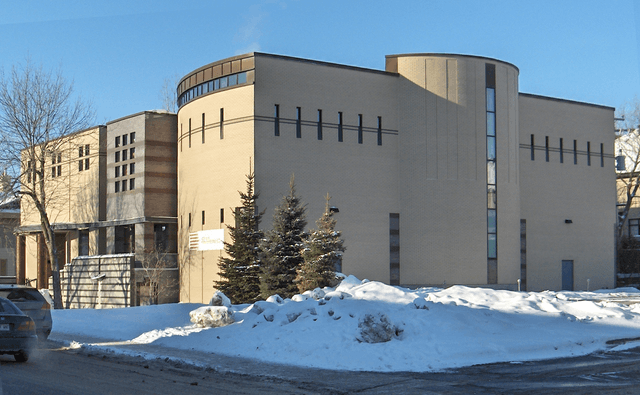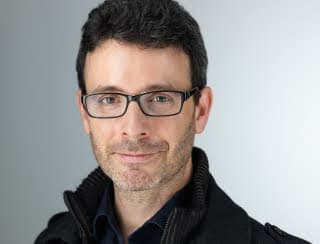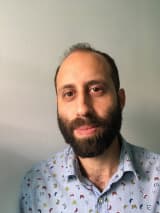Canadian Jewish youth have a long history of attending Protestant, Catholic, and Anglican schools. For some, this choice reflected their educational preferences; for others, it was the only option available. While public education today is not required to be religious, some Jewish families still choose to enroll their children in Christian private schools, shaping both the school’s identities and the Jewish identity of their students.
Baron Byng was a prestigious all-boys Protestant public school in Montreal, established in 1921 by the Protestant School Board and closed in the early 1980s–the building still exists at 4251 St. Urbain Street. The school had a predominantly Jewish student body from the 1920s to the 1960s, reflecting the demography of the surrounding Plateau area and community. For Jewish students, attending Baron Byng was often not a choice, as non-religious public schools did not exist in Montreal until 1988.
Israel Liquornik attended Baron Byng in the late 1940s. Brought up in small town Quebec, he lived there until the age of five, when his parents chose to relocate to Montreal to provide Israel with a Protestant education. While still rooted in religion, the Protestant schools were recognized for incorporating less religious teachings into their curriculum than the local Catholic schools.
While attending Baron Byng, Liquornik noted that most of his peers were Jewish. Each day, they dedicated one hour to participating in religious prayers and learning. Liqournik, who “always loved stories,” enjoyed the history and scriptures. He doesn’t recall encountering antisemitism during his schooling experience. Although all of his teachers were Protestant, towards the end of his time at Baron Byng, the school hired its first Jewish teacher.
Liqournik recognizes that while he appreciated and enjoyed his experience at Baron Byng, many Jewish families were concerned about their kids being exposed to another religion, especially since singing Christian prayers was a daily requirement. Participation in the choir was mandatory, serving as a “signature experience of the school.” Liqournik says that most Jewish students approached choir participation “in kind of a laughing way”.
Today, Canadian public schools are mostly non-religious, yet Jewish students still opt to attend Christian institutions. Sloan Avrich, a 3rd-year McGill student, attended Toronto’s Anglican Bishop Strachan School (BSS) from 2018-2022, making her decision to apply after a decade of Jewish education. She was not drawn to BSS because of its Anglican affiliation, but its religious affiliation didn’t deter her either as it played no role in the school’s curriculum. The school’s values, as outlined on its official website, make no reference to religion or its Anglican roots, and the majority of students weren’t Anglican (nor religious at all, for that matter).
During her years at BSS, Avrich felt she had to “work harder at maintaining [her] own connection to Judaism” due to the lack of daily exposure to Jewish culture. Nevertheless, she strengthened and re-affirmed her Jewish identity through her leadership roles as the head of the Jewish Student Union and the Holocaust Education Committee.
It was only during Avrich’s time at BSS that active participation in reciting prayers and hymns in weekly chapel services became optional. Avrich describes that BSS started to shift away from its Anglican roots towards a more pluralistic, non-religious educational approach as the student body became more diverse and new leadership was brought in. The weekly chapel services evolved to focus less on Anglican traditions and more on “incorporating different religions and newer perspectives.” In her role as leader of the Jewish Student Union, Avrich utilized chapel time to educate her peers about Jewish holidays, customs, and values, receiving a warm and respectful reception for her efforts.
While students have a wider array of educational institutions to choose from, Christian schools still remain popular among Jewish students. Just as Jewish students significantly influenced the legacy of Baron Byng, today’s Christian schools are similarly shaped by their Jewish student population. Like Liqournik and Avrich, students who attend faith-based schools can use their exposure to different perspectives to strengthen and enrich their own Jewish identities while sharing their unique perspectives with other multi-faith students.






